We are all responsible for the death of George Floyd
We are all complicit in the death of George Floyd and the system of racism behind it, argues reporter An Ngo.
June 5, 2020
“I can’t breathe, officer,” George Floyd gasped while Minneapolis police officer Derek Chauvin kneeled on his neck for 8 minutes and 46 seconds, not stopping when Mr. Floyd became unresponsive during the last 3 minutes nor for a full minute after the paramedics arrived. Onlookers pleaded to Officer Chauvin and his colleagues, but the police officers ignored their calls to let Mr. Floyd live, resulting in the death of the father of two in broad daylight.
When I watched the video of the May 25 incident, recorded by 17-year-old Darnella Frazier and shared on social media, I felt angry, saddened, and like many, overwhelmingly helpless. I didn’t know what I should do with my anger and sadness as the proximity between me and George Floyd seemed gargantuan. It’s easy to feel at this moment like we, as privileged students, are so distant from this issue that any response won’t have an effect. At first, I did. However, by connecting his death to the larger institutions of systemic racism, we can see our role in it and how we are responsible.
Mr. Floyd died not just from the cruelty of Derek Chauvin, but from the lack of humanity in this systematically oppressive country. In response to Mr. Floyd’s death, we must not only demand the conviction of all the participating officers but devote ourselves to dismantling oppressive institutions responsible for the death of Mr. Floyd and many others. The responsibility lies not only on the perpetrators but with everyone participating in the racist system, whether as bystanders or not, our school included. We must confront the pervasive racism that exists within U-High as these issues cannot be viewed as impersonal or distant. This year alone, we saw two instances of blatant racism that the community became aware of. Like the death of George Floyd, they were products of the racism that has conditioned us and that forms the foundation of this country.
Our failure as a country to ensure civil rights for all people makes us all partially responsible for Mr. Floyd’s death, not just those four officers. Likewise, our failure as a school to truly “honor diversity” as we have said in our mission statement also makes us partially responsible for the violent words shared, not just those two students. While we shouldn’t divert blame off of the perpetrators of these violent acts, we must understand our role in them and take responsibility. In discussions about racism, the unrecognized white privilege of many of our students becomes very apparent when they express surprise that racist incidents occur inside our pristine school walls. For the many of us who benefit from systemic racism, we must work harder to understand how we, often inadvertently, contribute to systemic racism both in the big picture and our own communities.
When we look at racism only in its overt and explicit forms, we lose sight of how it materializes in our daily lives. U-High’s façade of tolerance and liberalness misleads some into thinking that racism doesn’t affect our students, but this is because the school has mostly condemned overt but not covert forms of racism. We all tolerate racism to an extent in our daily lives, some more than others, out of convenience, fear or necessity. When we allow our friends to make racist jokes without consequence, disregard the importance of microaggressions and don’t participate in or take DEI workshops seriously, we become complicit in these violent acts.
The hardest part of anti-racism but perhaps the most important is confronting the racism within ourselves. It takes deliberate work to unpack our own biases and behavior, but we must hold ourselves accountable. We’ve all been conditioned to believe in the superiority of whiteness, so it takes conscious effort to examine and reject those beliefs. We need to look at our explicit and implicit beliefs, as both manifest in our behavior. While these efforts may seem futile in combating the hundreds of years this country has had to create systems to subjugate African-Americans, they’re imperative to dismantling those systems.
“I can’t breathe. I can’t breathe. I can’t breathe,” we chant in solidarity with George Floyd and in solidarity with Eric Garner who died in 2014 from a police officer’s chokehold. When these protests end, little will have changed for African-Americans trying to live their lives. The horrific death of George Floyd, along with the incidents of hate speech at U-High, should serve as a stark reminder that the burden can no longer rest solely on the shoulders of people of color. Justice is not achieved when the perpetrators are convicted or disciplined, but as individuals and as allies, we have to commit ourselves to learn, to grow and to be better in pursuit of an America where Black lives matter.



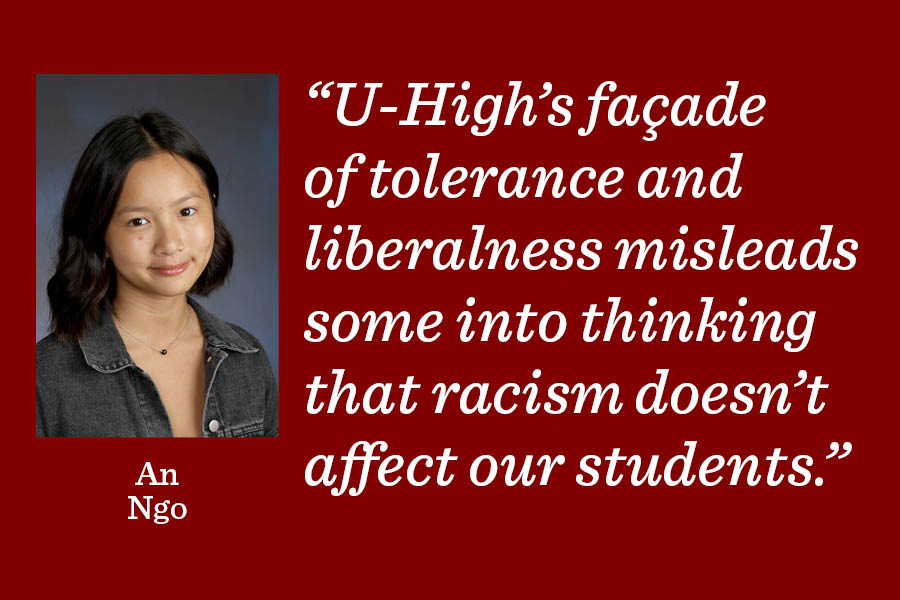
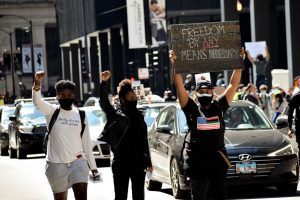
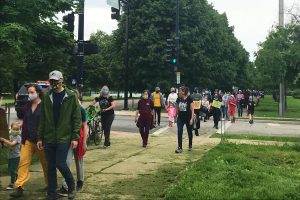





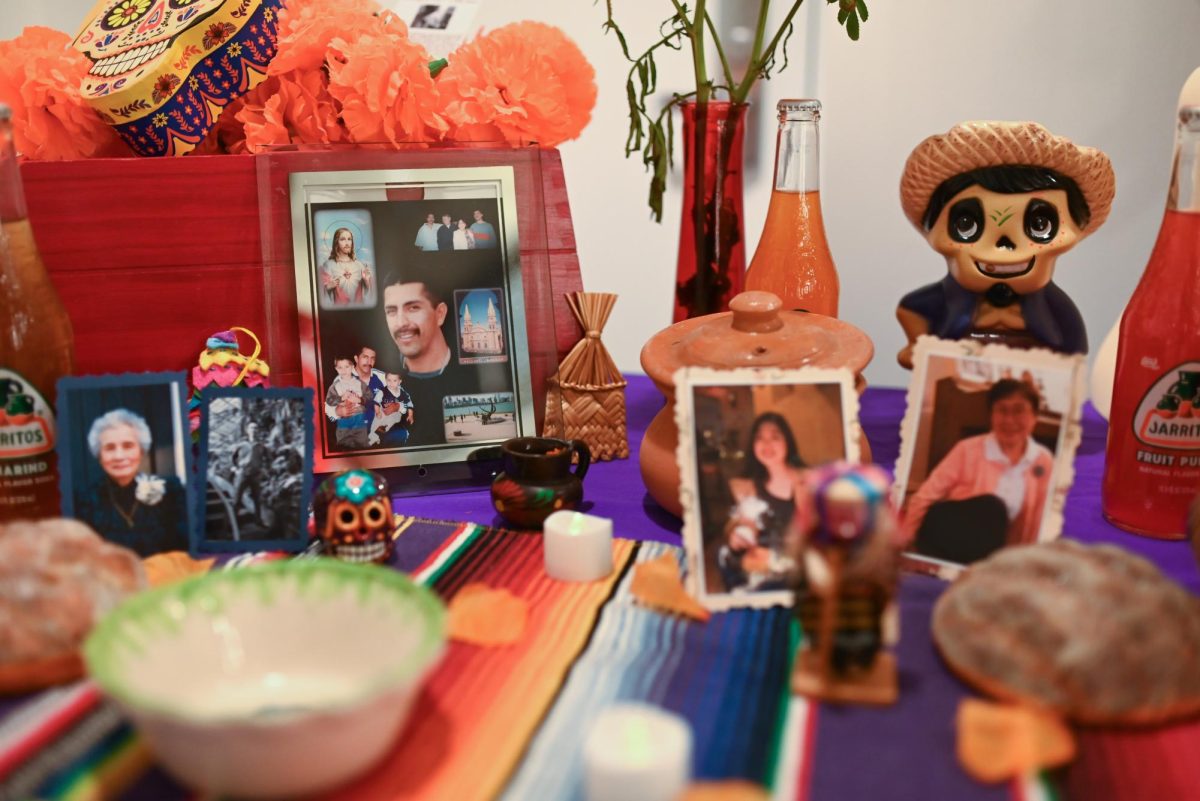


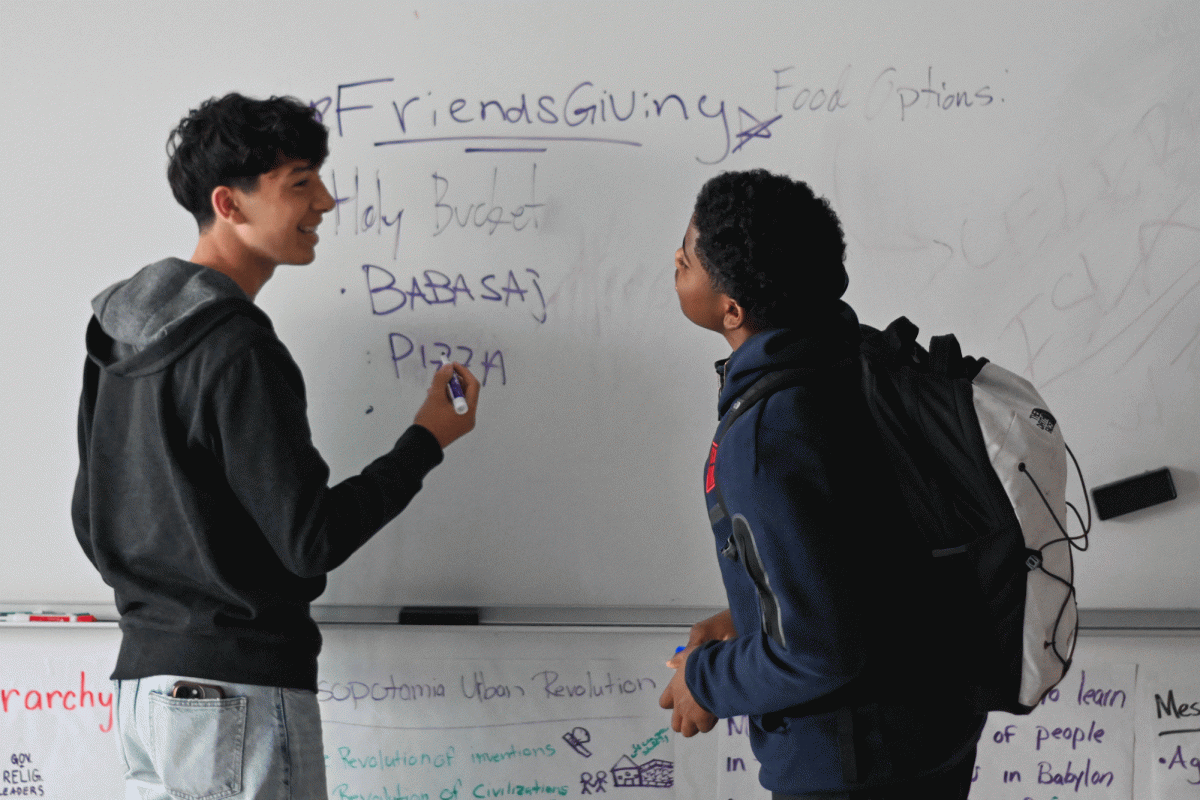
Elena Sakman • Jul 7, 2020 at 9:49 am
Not at all. I am a Russian immigrant, who worked hard just to be in this country and have a chance here. People like me, people who are at the border dying to be able to work here, honestly, how we are responsible for decisions we did not make? Over all everyone in USA is privileged compare to a lot of places, where it is hard to survive even for people who don’t commit any crimes.